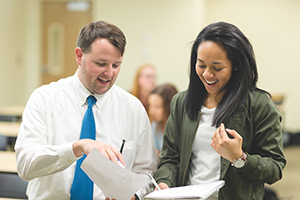
Multiple studies have found that teachers who learn new teaching strategies and then return to the classroom to implement them on their own retain much less of what they’ve learned than those who also get a peer coach. Not all studies have been so supportive of peer coaching, however, leading Bryan and Meagan to identify several qualities that can contribute to a successful peer coaching experience. Coaches need structure, too. Merely being present and supportive is not enough; the peer coach needs to have the knowledge and confidence to be able to meaningfully critique the coachee’s performance. Leadership support is measurably beneficial too.
